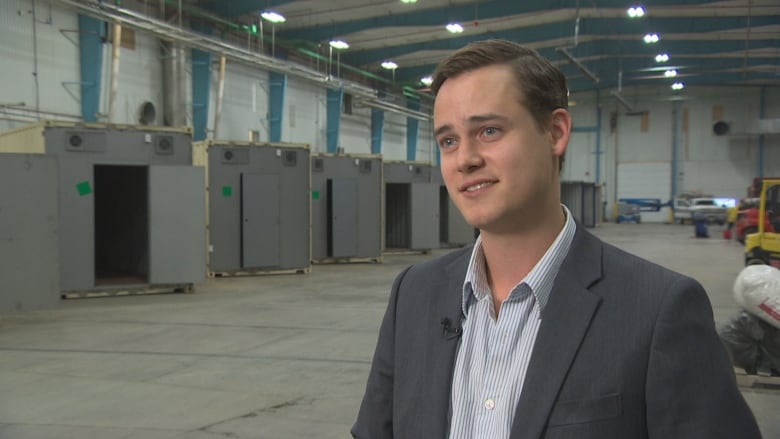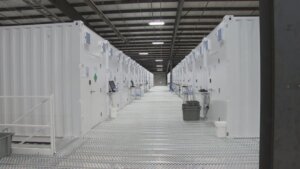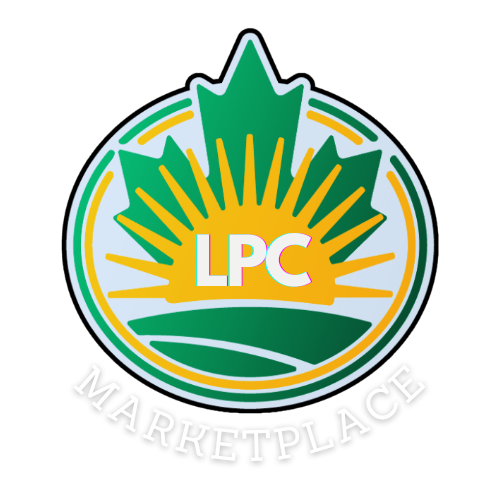Grow Pods a Success Story in Scalability and Quality Control

Winnipeg-based Delta 9 Turned In-house Solution into Growing Side Business
 A news report from the CBC features Delta 9 Cannabis’ grow pods, a self-contained, turnkey cannabis operation that can produce about 32.5 kg of cannabis per year. At current prices, that’s with generate about $300,000 to $400,000 annually.
A news report from the CBC features Delta 9 Cannabis’ grow pods, a self-contained, turnkey cannabis operation that can produce about 32.5 kg of cannabis per year. At current prices, that’s with generate about $300,000 to $400,000 annually.
The pods are made from shipping containers, modified to grow cannabis. Their design means that they are also stackable, theoretically turning any warehouse into a large operation in three dimensions.
Delta 9 first developed the system for in-house use.
“We’ve already heard horror stories from the rest of the industry on some major crop losses at big open greenhouse facilities,” said CEO John Arbuthnot. “With the pod system, all of that risk is compartmentalized. If there is a risk of contamination, it’s contained within one area and that risk is mitigated.”
The grow pods obviously make expansion a lot easier. Rather than extend a greenhouse or build a new one, you simply add more pods. Quality control is another huge plus. Plant disease, fungus, and pests travel quickly in big greenhouses. But since each pod is self-contained, they prevent airflow and represent a physical barrier, significantly reducing the risk of contaminants from sick plants infecting healthy ones. Any pods that show signs of a problem can be quickly destroyed.
According to the report, the losses can be as low as $10,000 in product compared to millions.
“From a risk mitigation standpoint it’s a very attractive production model,” Arbuthnot said
Delta 9 now has a production facility to build the grow pods. They are shipped to customers “some assembly required” – almost ready to go right out of the box.
“It’s not quite as bad as Ikea,” Arbuthnot joked.
Not everyone is convinced. Canopy Growth Corporation stands by its greenhouse model, saying that it is both economically and environmentally sustainable.
“You can get the cost per gram lower in a greenhouse and there’s less environmental impact to using the power of the sun with supplemental lighting,” said Canopy spokesperson Jordan Sinclair, VP of communications. “Our greenhouses have rain recapture, so it’s a bit of a more economically attractive model but it’s also a much more sustainable model.”
Still, there will likely be a strong market for them – in Canada and around the world – which means Delta 9 will be getting into the cannabis ancillary market. With its versatility and expandability, could this be one solution to solve the current cannabis shortage? Delta 9 alone plans to have 600 of its pods stacked inside its own facility by the end of 2019, bringing its production of cannabis to about 17,500 kilograms — roughly $175 million worth at current retail prices.
Delta 9 has patents pending on the new system in Canada and the US.
This editorial content from the LPC News Editor is meant to provide analysis, insight, and perspective on current news articles. To read the source article this commentary is based upon, please click on the link below.


